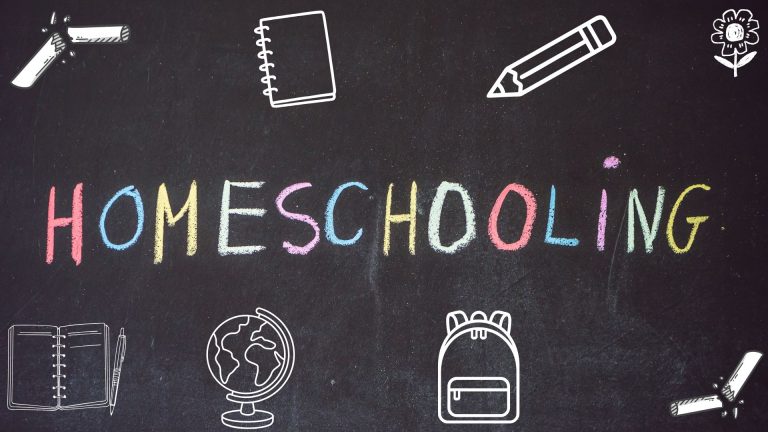Delphian School: Is the Independent Learning Model Right for Your Student?

Is your student chafing against what feels like a rigorous, inscrutable learning model at their “traditional” school?
Do they look forward to time outside the classroom, when they have more latitude to pursue the lines of inquiry that interest them most?
If you can honestly answer yes to either question, it may be time to ask whether your student is a good fit for a more flexible learning environment in which they have considerably more agency in their studies.
That’s the promise of the independent learning model, a fast-growing educational philosophy that puts students in (greater) control.
It may come as no surprise that independent schools, rather than public K-12 institutions, are at the forefront of the student-driven learning movement. For example, at Delphian School in rural Oregon, educators guide students through a self-directed curriculum that shies away from rigorous testing or standards-based evaluation and instead encourages student-led inquiry.
Delphian School and its peer institutions offer an array of advantages for students from all backgrounds. Their educational philosophy supports an expansive range of learning styles. That is to say that any student can thrive in the environments they create. But the independent learning model is especially appealing to those students — and their guardians — who meet some or all of the following criteria.
Your Student Is Naturally Inquisitive and a Self-Starter
Naturally inquisitive students who take the initiative to experiment or pursue knowledge for its own sake are natural fits for the independent learning model. They “take” to it well, unsurprisingly.
However, students who have not exhibited any great inclination toward experimentation or inquisition are not necessarily any less well-suited to the independent learning model. Like almost anything else, initiative can be taught, or at least trained. Students who may formerly have been reluctant to do much on their own can, with support, be invited and indeed encouraged to come into their own.
You Want to Encourage Greater Independence
Following on this idea that any student can be taught to learn independently, the independent learning model may indeed be a superior choice for those who need a bit more encouragement. That encouragement is the specialty of educators who serve not as instructors in the traditional sense but as “sherpas” for self-directed inquiry.
As Delphian School says, its academic supervisors “serve as expert guides, there to emphasize purpose, interest, and comprehension as well as assist, support, and encourage student success. They ensure students are learning at their optimum pace on their program.”
A year or two in an independent-learning environment may, in other words, unlock hitherto unexplored and perhaps altogether unknown capabilities and interests within your student.
You or Your Student Have Had Negative Experiences in “Traditional” Education Settings
This is an understandable and frequently cited reason why parents and students transition from public schools or other “traditional” education settings — including many private or charter institutions — to ones more focused on independent learning.
“Negative,” of course, is a subjective term. For some families, it may simply connote anything that falls short of justifiably high expectations. If that’s the case for yours, that’s fine; you shouldn’t have to compromise your values or accept anything less than the best opportunities for your child.
You’re Skeptical of Testing- and Memorization-Based Approaches
You would not be alone. The backlash to testing- and “standards-based” educational approaches is growing as more parents and allies realize that these approaches can themselves be subjective.
One only needs to look at data showing similar examinations producing very different results. For example, students who took the most recent National Assessment of Education Progress scored significantly lower on it than on their home states’ standardized exams — in about 75% of states, the gap was 15 points or greater.
This isn’t to say that all tests are “bad” nor that broad metrics are never appropriate in education. Rather, it’s a cautionary tale about relying too heavily on standardization, especially when that reliance encourages students and their teachers to prioritize memorization over understanding.
You (And Your Student) Seek a Well-Rounded, Fulfilling Education Experience
Standards-based education can be “well-rounded” in the technical sense. Indeed, many supporters of such standards justify them for precisely this reason. “Objective” standards ensure that every student gets adequate instruction across a breadth of core educational disciplines.
Of course, a curriculum can be broad and narrow at the same time. “Teaching for the test,” rather than encouraging students to pursue their own learning objectives, has a filtering effect that leaves countless learning opportunities unexamined. Students may be at a disadvantage for it — or at the very least, compelled to seek the answers on their own.
Your Student Isn’t Sure What They Want to Be When They Grow Up
An independent learning approach is a balm for students who know only that they are interested in learning, not so much what they’d like to do with their lives. The more control a student has over what, how and when they learn, the more freedom they have to find what really interests them. They’re better equipped to resist the “tracking” or simple inertia that may guide them into areas of specialization — and eventually majors and careers — that don’t truly spark their passion.
No Wrong Answers
Students learn in myriad different ways. They thrive in different sorts of learning environments as well. Educators know this as well as anyone.
As an adult responsible for a young person’s education, you know your student better than anyone else. You have a better sense of the learning styles they’ll respond best to. And, of course, you have a keen interest in making sure they get the very best education within those constraints.
That education could well come at an institution that offers a more open, student-centered curriculum, like Delphian School. One that encourages independent, self-directed learning.
Or it might not. This is a decision best made in consultation with your student, informed by what you’ve learned (and will continue to learn, no doubt) about the various approaches to K-12 pedagogy.






